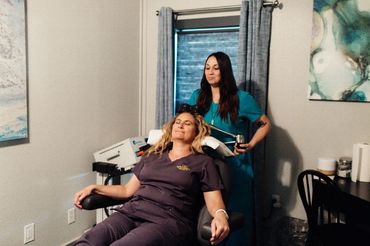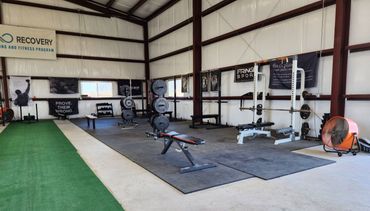
Drug & Alcohol Rehab Centers near Canyon Lake, TX
Finding treatment for substance use disorder in Canyon Lake, Texas, is crucial for those seeking recovery. Understanding treatment options and payment possibilities before taking that first step can significantly impact the journey towards healing.
Treatment Centers near Canyon Lake, TX
Open to Travel? Check out Top-Rated Options
All Treatment Centers near Canyon Lake, TX
Are You Covered For Treatment?
- Houston Rehabs
- Dallas Rehabs
- Austin Rehabs
- San Antonio Rehabs
- Fort Worth Rehabs
- El Paso Rehabs
- Lubbock Rehabs
- Amarillo Rehabs
- Corpus Christi Rehabs
- Laredo Rehabs
Information About Rehab in Canyon Lake
Latest Reviews
Latest Reviews of Rehabs in Texas
Windmill Wellness Ranch
Staff is continually trying to make treatment as comfortable as it can be for clients. Staff actually cares what happens to the clients, aren't just here for a pay check. Staff could communicate more efficiently with each other.
Area Information
Canyon Lake, nestled in the picturesque Texas Hill Country, is known for its stunning reservoir and outdoor recreational activities. With a population of approximately 31,0001 that values a close-knit community feel, this area offers a serene backdrop for residents and visitors alike.
Substance Misuse and Addiction in Canyon Lake, Texas
Regrettably, drug addiction impacts both the residents of Canyon Lake and the broader population of Texas. Statistics reveal that from 2017 to 2019, an annual average of 5.9% or approximately 1.4 million Texas residents grappled with a substance use disorder within the past year.2
Drug and Alcohol Rehab
Rehabilitation facilities offer various programs and options to aid individuals on their path to recovery. These programs cater to diverse needs and approaches, ensuring a personalized journey towards overcoming addiction.
What Happens in Drug and Alcohol Rehab?
Entering rehab involves navigating multiple stages of treatment, including detox, inpatient, outpatient, and aftercare. Each stage is designed to address varying needs and circumstances on the path to recovery, acknowledging the uniqueness of every individual’s journey.
Detox Programs
Detox programs are pivotal initial steps in the journey toward recovery from substance use disorders. These medically supervised programs offer a safe environment for individuals to rid their bodies of the substances they are dependent on. Medically administered medications help manage the often uncomfortable and sometimes dangerous withdrawal symptoms. This crucial phase aims not only to achieve physical stabilization but also to prepare individuals for the subsequent stages of treatment.
How Long Is Detox in Rehab?
The duration of detox varies, typically lasting between three to seven days, contingent upon factors such as the substance used, the individual’s health condition, and the severity of their addiction.
Inpatient Drug and Alcohol Rehab
Inpatient treatment programs play a vital role in comprehensive rehabilitation efforts. These programs provide a structured and immersive environment where individuals can focus solely on their recovery. Typically lasting for 30, 60, or 90 days, inpatient programs offer a range of therapeutic interventions, including individual counseling, group therapy, and specialized treatments to address co-occurring mental health disorders. The immersive nature of inpatient care allows for close monitoring of progress, fostering a supportive community and equipping individuals with the necessary tools to navigate life beyond addiction.
Outpatient Drug and Alcohol Rehab
Outpatient treatment stands as a flexible and vital component in the continuum of recovery care, focusing on aftercare and relapse prevention strategies. These programs offer individuals the opportunity to receive therapy and support while continuing their daily responsibilities, be it work, school, or family commitments. The flexible nature of outpatient care allows individuals to integrate newfound coping skills into their daily lives while receiving ongoing support and guidance. With a strong emphasis on relapse prevention, these programs equip individuals with the tools needed to navigate triggers and challenges post-treatment, fostering long-term sobriety and sustained wellness.
How Much Does Rehab Cost?
Paying for rehab can seem daunting, but many options exist that can help cover treatment costs, ensuring financial concerns don’t hinder the path to recovery. Some of these include:
- Payment Plans
- Government Grants and Scholarships
- Free Rehab
- State-Funded Rehab
Does Insurance Cover Drug and Alcohol Rehab?
Most Insurance providers cover at least a portion of rehab costs, alleviating significant financial stress. Widely accepted drug rehab insurances include:
Finding The Best Rehab Center
Canyon Lake, Texas Drug and Alcohol Rehab Facilities
You can use our rehab locator tool to assist in your search. Keep in mind, opting for treatment out of state is often recommended. This helps minimize distractions, offering a more concentrated recovery environment by distancing individuals from familiar settings and triggers. Regardless of your choice to stay in Texas or seek treatment elsewhere, our locator tool is an excellent resource during your search.
Sources
- United States Census Bureau. Canyon Lake, Texas. April 1, 2020.
- Substance Abuse and Mental Health Services Administration. Behavioral Health Barometer: Texas, Volume 6.






































